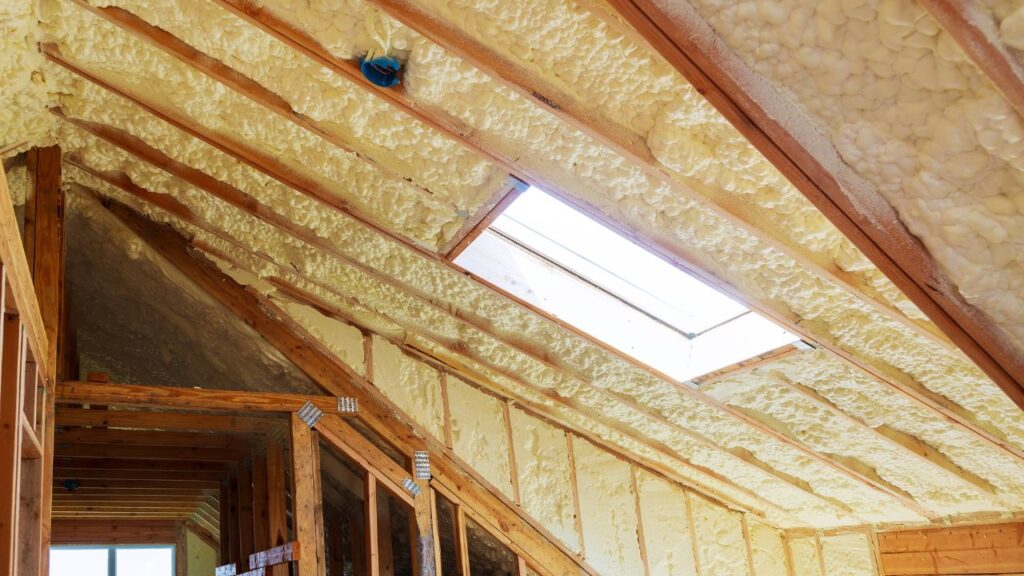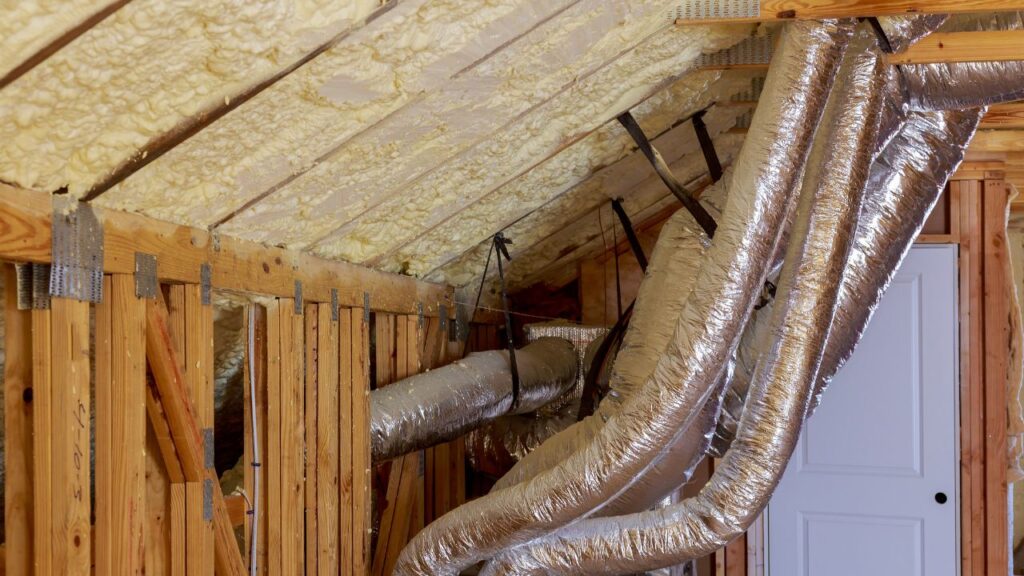Cell Foam Insulation Cost
Cell foam insulation costs $2.00 to $5.50 per square foot of surface area installed, depending on the project size, conditions, location, and whether it is open-cell or closed-cell foam.

Closed cell foam is a versatile and widely used material in construction and various industries due to its exceptional insulation properties, durability, and resistance to moisture. As individuals and businesses consider incorporating closed cell foam into their projects, one crucial factor to consider is the cost per square foot.
For those seeking top-tier protection, look no further than closed cell spray foam insulation! With its higher density and exceptional insulating properties, this foam variety stands as the optimal choice, especially for regions enduring extreme fluctuations between hot and cold climates.

Planning to insulate with spray foam? Determining the perfect thickness for your home’s protection requires consideration of the insulation type you’re using.
For closed cell spray foam, it’s recommended to apply a layer that’s 2-3 inches thick on walls and 4-5 inches thick on the roof deck. If you’re opting for open-cell foam, the same thickness is advised for walls, while the roof deck should be coated to a thickness of 6-10 inches.
Collaborating with an insulation professional will facilitate a thorough evaluation of your home’s requirements, guiding decisions on potential multiple applications to achieve the optimal recommended thickness.
Cell Foam Insulation Cost
Cell foam insulation costs $2.00 to $5.50 per square foot of surface area installed, depending on the project size, conditions, location, and whether it is open-cell or closed-cell foam.

By adhering to these recommendations, you will be better equipped to manage the financial aspects and preparations associated with your closed cell spray foam insulation undertaking.
In the world of construction and insulation projects, accurate material quantity estimation is paramount. For closed-cell insulation installations, understanding how much insulation material is needed not only ensures precise budgeting but also minimizes material wastage. At Estimate Florida Consulting, we specialize in providing comprehensive and meticulous closed-cell insulation cost estimating services, taking into account various factors that influence material requirements.

Understanding the cost dynamics of closed cell foam insulation is essential for informed decisions. Estimate Florida Consulting offers a comprehensive approach, covering optimal thickness, pricing insights, and precise material quantity estimation. Our dedication ensures efficient, resilient, and budget-smart insulation projects. From extreme weather protection to meticulous material estimation, trust us as your partner in achieving insulation excellence. Contact us at Phone: 561-530-2845 for cost-effective insulation solutions tailored to your needs.
Closed cell foam insulation is a versatile material widely used in construction due to its exceptional insulation properties, durability, and resistance to moisture. It offers effective thermal protection, making it suitable for various industries and regions with extreme climate fluctuations.
Closed cell spray foam insulation is the optimal choice, especially for areas with significant temperature variations. Its higher density and exceptional insulation properties make it a top-tier option for providing insulation and protection to buildings.
For closed cell spray foam insulation, it’s recommended to apply a layer that’s 2-3 inches thick on walls and 4-5 inches thick on the roof deck. Collaborating with an insulation professional can help determine the right thickness for your specific project.
To estimate the cost of closed cell spray foam insulation, obtain multiple estimates from 3-5 contractors. Keep in mind that pricing can vary due to operational expenses and timing. Allocating extra budget and negotiating with suppliers can help manage costs effectively.
Late Fall or early Winter is often a favorable time to request insulation quotes, as contractors may offer discounts during their less busy periods, potentially reducing your overall project costs.
Accurate material quantity estimation is crucial for budgeting and minimizing wastage. Consider factors such as the area to be insulated, insulation thickness, corners, angles, and irregular shapes. Working with experts who employ advanced measurement techniques can ensure precise estimates.
The material quantity needed is influenced by the area to be insulated, insulation thickness, corners, angles, irregular shapes, and the density of closed-cell insulation. These factors are taken into account to provide accurate estimates.
The density of closed-cell insulation affects the amount of material required. Higher density insulation provides better thermal and sound insulation properties but may increase costs. Estimators consider the chosen density to calculate the volume of material needed.
Here I am going to share some steps to get your cell foam insulation cost estimate report.
You can send us your plan on info@estimatorflorida.com
Before starting your project, we send you a quote for your service. That quote will have detailed information about your project. Here you will get information about the size, difficulty, complexity and bid date when determining pricing.
We do cell foam insulation cost estimating and prepare a detailed report for your project. At last, you finalize the report and finish the project.



561-530-2845
info@estimatorflorida.com
Address
5245 Wiles Rd Apt 3-102 St. Pete Beach, FL 33073 United States
561-530-2845
info@estimatorflorida.com
Address
5245 Wiles Rd Apt 3-102 St. Pete Beach, FL 33073 United States
All copyright © Reserved | Designed By V Marketing Media | Disclaimer